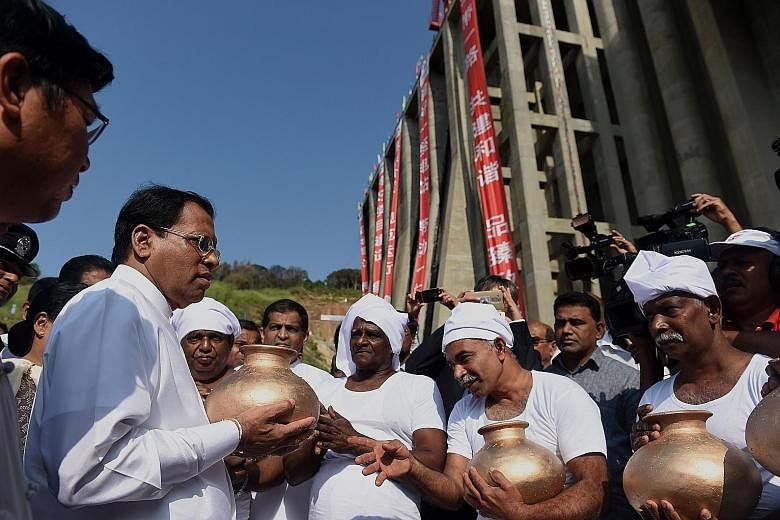COLOMBO • President Maithripala Sirisena came to power in Sri Lanka promising justice for war crimes, breaking from his predecessor and presenting the island with its first real shot at lasting peace.
But that optimism has been sorely tested as Mr Sirisena - having missed a two-year deadline to investigate wartime abuses - declared he would never prosecute his soldiers, rejecting outright fresh United Nations calls for an international trial.
"I am not going to allow non-governmental organisations to dictate how to run my government," he said, a day after the UN criticised Sri Lanka's "worryingly slow" progress in facing its wartime past.
"I will not listen to their calls to prosecute my troops."
His defiant tone marked a sharp shift from the conciliatory approach that had earned praise from the international community, and drew unfavourable comparisons to wartime leader Mahinda Rajapakse.
Mr Rajapakse had resisted international pressure to probe allegations that government forces under his control killed up to 40,000 Tamil civilians in the final months of the war, which ended in May 2009.
Mr Sirisena has made inroads towards shedding Sri Lanka's status as global pariah since defeating Mr Rajapakse in January 2015.
A member of the majority Sinhalese community, he received the support of the Tamil minority after promising accountability for excesses carried out by the largely Sinhalese military.
In October 2015, he agreed to a UN Human Rights Council resolution that called for special tribunals and gave Sri Lanka 18 months to establish credible investigations.
But the deadline lapsed without those commitments being met.
"We put too much trust in him, and he has badly disappointed us," said Mr Eswarapatham Saravanapavan, a politician from the war-ravaged Tamil heartland of Jaffna. "We did not ask for handouts. All we wanted was justice."
But experts say the President is juggling pressures from a muscular army, which opposes any trials, and an unwieldy political coalition that helped bring him to power.
"The political constraints facing Sirisena from a popular military are considerable, and the participation of foreign judges has always been a hard sell for many Sinhalese," the International Crisis Group's Mr Alan Keenan said.
There have been symbolic gestures towards reconciliation. The anthem was sung in Tamil during national day celebrations last year for the first time in 67 years, and swathes of military-occupied land were returned to Tamils in Jaffna.
But there have been false steps too. Draconian anti-terror laws have not been repealed as promised, and rights groups expressed outrage when Mr Sirisena sent a police officer implicated in abuse to defend his administration at a UN inquiry into torture.
He also raised eyebrows last November when he asked Mr Donald Trump, then US President-elect, to use America's clout at the UN to clear Sri Lanka's war crimes record.
Diplomatic sources say a UN rights council session later this month poses a key test for Sri Lanka, which narrowly avoided a censure motion soon after Mr Sirisena came to power.
AGENCE FRANCE-PRESSE

